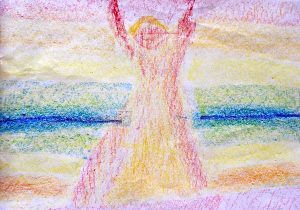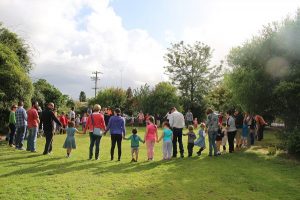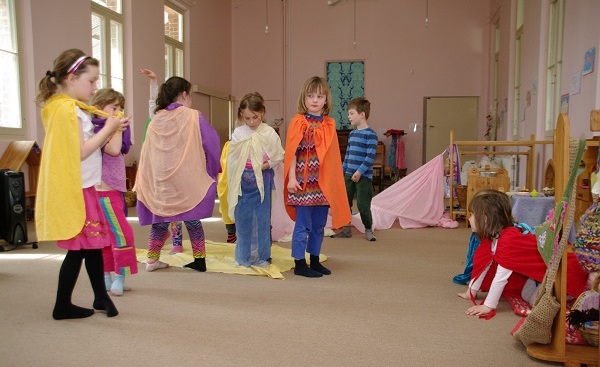The Wild Cherry Prep year provides children with a beautiful space to learn through imaginative play and formal activities that are holistically based. The program is very similar to the kindergarten but extends the children’s abilities in being attentive for longer periods of time and in doing more complex tasks.
Before the age of seven, children are still living in an imitative stage of development. The child is sensitive to the material and human environment and all its aspects – the physical, emotional and spiritual.
The teacher endeavours to create a harmonious environment, full of purposeful activities that are worthy of imitation. Simple homely tasks such as cooking, cleaning and tidying are performed every day. The children become a community of doers built up through meaningful work.
Artistic activities such as painting, drawing, modelling and craft are balanced with storytelling, singing and games. These more formal aspects of learning are also balanced with time for imaginative play supported by a rich supply of natural materials and toys. 
A typical day starts inside, where the children help with cooking and preparing fruit for sharing. There could be a choice of painting, drawing or playing with natural materials and toys, depending on the rhythm of the week.
The children work together to pack away and then share morning circle. Here the teacher leads the group with seasonal rhymes, verses and songs. This is followed by morning tea and a long outside play where the children might also do some gardening.
Inside again and the teacher tells a story, (usually a fairy tale) and then they share lunch together. After lunch the children rest while the teacher sings and reads to them. They might then do a craft activity by making their own art folios, pom poms, winter lanterns, or creating with clay or modelling wax.
 Rhythm is a very important aspect of Waldorf/Steiner education. Children need the reassurance of continuity, and regular activities and events mark the year, season, week and day. Working with rhythm helps the children feel secure and find their place in the world; repetition develops memory and deepens understanding.
Rhythm is a very important aspect of Waldorf/Steiner education. Children need the reassurance of continuity, and regular activities and events mark the year, season, week and day. Working with rhythm helps the children feel secure and find their place in the world; repetition develops memory and deepens understanding.
All learning experiences of children under seven should be integrated; they need to experience the relevance of their world and to see learning as a natural part of life. Literacy and numeracy are consciously developed out of doing, through the various activates of the day. Children develop competence in speaking, listening and the ability to use language with confidence. The development of aural and oral skills are modelled through the beautiful tones and articulate speech of the teacher. The rich and poetic language used in the stories support the natural extension of vocabulary.
Mathematical concepts and language are also experienced through daily activities such as cooking, building, table setting and games. Forward, back, below, under, largest, smallest and counting all happen through work and play. Learning in this way is meaning because of its relevance to life.
Just as important is the social and emotional growth of the child. The program supports this by allowing time for the child to develop at their own pace, whilst being supported by a nurturing atmosphere.
